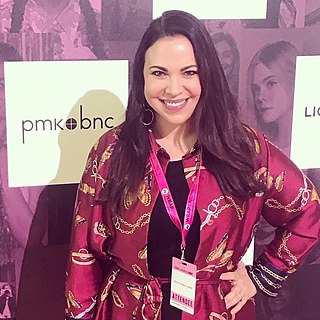A Quote by Paolo Bacigalupi
The things that have really gotten confusing to me is how you balance the desires of your publishers to produce things on a schedule, and people are always sort of giving you ideas on what you should follow up with or how you should proceed next and things like that.
Related Quotes
Economics should be defined in terms of what it is about. It should be about how people produce things, how people exchange them, how people earn income, how they pay taxes, how the government provides infrastructure with tax revenue, and how it conducts monetary policy. The subject has to be defined in terms of the object of inquiry.
Many churches are measuring the wrong things. We measure things like attendance and giving, but we should be looking at more fundamental things like anger, contempt, honesty, and the degree to which people are under the thumb of their lusts. Those things can be counted, but not as easily as offerings.
I'm always interested in how people, myself included, have ideas of themselves, of how they thought they would be, or of how they want to be seen. And the older you get, the world keeps telling you different things about yourself. And how people either adjust to those things and let go of adolescent notions. Or they dig in deeper.
Emotions weren’t created to just lie around. You should experience things to the full. I’ve got a sense of the clock ticking. We have to feel all those things to the maximum. Like, I don’t eat a lot but I really love eating. And I like being precise and particular. There is a certain respect in that. If you can do your day depending on how you feel, and enjoy things as well.
I think that Democrats have to think through answers we haven't in the past: How we are going to create those jobs? How should we restructure the entire tax code? Should we have things like a payroll tax, when jobs are so scarce? They weren't - basically the architecture of our employment law, tax law, all these things were from the 1930s - and I do think that one benefit of Donald Trump, which is not worth it, but one perverse thing is, he has widened the scope of things that we should discuss.
One of the things I have taken for granted, in terms of how technology works in the world, is the people that develop it and get it out there don't really know what we are going to do with until we have really gotten ahold of it and it has become ubiquitous. And then we wind up doing things that its inventors never dreamed of and those things become the real change drivers. That is actually where the whole technocracy thing falls apart for me, because the people who invented it can't predict what we're going to do with it.
Being a doctor, I worry that the patient may be uncomfortable about sharing something. It could be sexual dysfunction, an eating disorder, depression, domestic violence - these are serious topics many people don't want to talk about. I'll try to follow up with questions like: How are things at home? How's work? But we don't always have time to probe. Don't be afraid to bring up the important things going on in your life, even if they don't feel 'medical.' Your doctor would rather know than not know.






































